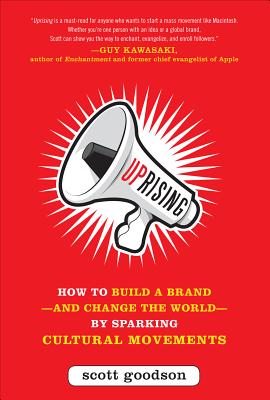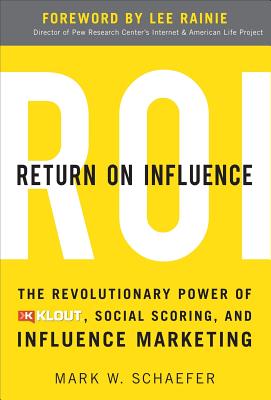When You Wanna Be Startin' Somethin'
Sally Haldorson
April 09, 2012
As I was writing this blog post, the Michael Jackson song, Wanna Be Startin' Somethin' (click on the link to be transported to 1987), popped into my head. Let me explain: Being a business that sells business books can be kinda meta. By meta, I mean that the very product we sell informs how we promote and sell it, and our company.
As I was writing this blog post, the Michael Jackson song, Wanna Be Startin' Somethin' (click on the link to be transported to 1987), popped into my head. Let me explain:
Being a business that sells business books can be kinda meta. By meta, I mean that the very product we sell informs how we promote and sell it, and our company. Around 800-CEO-READ these days, we are working on our new KnowledgeBlocks site which will launch May 1. We're busy not only fine-tuning a product that we hope has value for all knowledge workers, but also strategizing on how we will get the word out and build some momentum. We're like a lot of companies asking the following question: how do we become the loudest voice in a loud room without losing the subtleties that help us stand out in a crowd?
And so it is that we looked toward two recent books from McGraw-Hill for guidance:
Scott Goodson's Uprising: How to Build a Brand--and Change the World--By Sparking Cultural Movements
 Uprising first tells us to stop marketing. Well, at least, stop marketing in the usual way. Goodson is the founder of StrawberryFrog which calls itself a "cultural movement" agency. A cultural movement can be started by creating something authentic that compels people to share their fandom rather than creating a product only to be sold to one customer at a time. It's the perfect message for a population used to posting status updates with every single one of there 728 friends, or pinning up a picture of whatever sparks their creativity. Creating a cultural movement can be challenging, however, because it's all about giving up control over the messaging, and instead, letting the messaging evolve, or be shaped, from the outside. Your responsibility is to give them a great product or service, and then all the tools to easily share it.
Mark Schaefer's Return On Influence: The Revolutionary Power of Klout, Social Scoring, and Influence Marketing
Uprising first tells us to stop marketing. Well, at least, stop marketing in the usual way. Goodson is the founder of StrawberryFrog which calls itself a "cultural movement" agency. A cultural movement can be started by creating something authentic that compels people to share their fandom rather than creating a product only to be sold to one customer at a time. It's the perfect message for a population used to posting status updates with every single one of there 728 friends, or pinning up a picture of whatever sparks their creativity. Creating a cultural movement can be challenging, however, because it's all about giving up control over the messaging, and instead, letting the messaging evolve, or be shaped, from the outside. Your responsibility is to give them a great product or service, and then all the tools to easily share it.
Mark Schaefer's Return On Influence: The Revolutionary Power of Klout, Social Scoring, and Influence Marketing
 Return on Influence has a different tone, or maybe orientation, than Uprising because it puts more of the action or networking into your own hands. Or, should I say, into the hands of "the most influential bloggers, tweeters, and YouTube celebrities to build product awareness, brand buzz, and new sales. Organizations are now using these "Citizen Influencers" as economical and efficient external marketers to help the company influence the conversation. Schaefer acquaints us with Klout, a tool "to quantify your level of online influence" (think Justin Bieber) created by Joe Fernandez in 2008 and how to up your Klout score. If it is true, as Schaefer says, that "[o]n Twitter, no one can hear you scream..." then Klout drives attention not just by talking but by placing value on compensation (Who wants a free product to review on your blog today?) and conversation.
It is tough these days to figure out just where to spend your marketing time and attention when you've put your soul and your company's money into a product or service. There are a multitude of avenues to go down and it seems tweeting and pinning and sharing will only get you so far. These two books will not only show you what to do to get your message out, but then what to do to sustain and grow the momentum.
Return on Influence has a different tone, or maybe orientation, than Uprising because it puts more of the action or networking into your own hands. Or, should I say, into the hands of "the most influential bloggers, tweeters, and YouTube celebrities to build product awareness, brand buzz, and new sales. Organizations are now using these "Citizen Influencers" as economical and efficient external marketers to help the company influence the conversation. Schaefer acquaints us with Klout, a tool "to quantify your level of online influence" (think Justin Bieber) created by Joe Fernandez in 2008 and how to up your Klout score. If it is true, as Schaefer says, that "[o]n Twitter, no one can hear you scream..." then Klout drives attention not just by talking but by placing value on compensation (Who wants a free product to review on your blog today?) and conversation.
It is tough these days to figure out just where to spend your marketing time and attention when you've put your soul and your company's money into a product or service. There are a multitude of avenues to go down and it seems tweeting and pinning and sharing will only get you so far. These two books will not only show you what to do to get your message out, but then what to do to sustain and grow the momentum.



